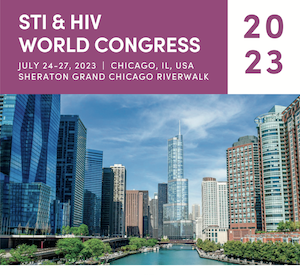Epidemiology & Monitoring
Session: Gonorrhoea: epidemiology and vaccine
O11.6 - Effect of oropharyngeal colonization with Neisseria meningitidis on subsequent risk of gonorrhea
Wednesday, July 26, 2023
15:45 - 16:00 CST
Location: Chicago 9
- AT
Abigail Norris Turner, PhD
Professor
Ohio State University
Columbus, Ohio, United States
Primary Presenter(s)
Background: Oropharyngeal (OP) colonization with Neisseria meningitidis (Nm) is found in ~10% of general population adults and up to 40% of individuals attending sexually transmitted infection (STI) clinics. Cross-sectional data suggest that Nm colonization may be associated with reduced prevalence of oropharyngeal Neisseria gonorrhoeae (Ng) infection. Recent ecological studies also indicate that Nm serogroup B vaccines may reduce Ng infection risk. We aimed to determine whether OP Nm colonization reduced subsequent gonorrhea risk in people seeking STI care at a clinic in Columbus, Ohio, USA.
Methods: We examined medical records from patients seen between January 2015 and February 2020. Per protocol, all patients underwent urogenital Ng screening via nucleic acid amplification testing (NAAT). Those reporting receptive oral sex were screened for OP Ng via NAAT and OP Nm via culture. We identified 198 patients with OP Nm. Using unadjusted hazard models, we compared their prospective risk of gonorrhea at any anatomical site to the gonorrhea risk among patients in three sex-matched control groups: those with 1) OP Ng, 2) urethral Ng, or 3) no infection at baseline.
Results: The sampling strategy yielded 1031 participants, of whom 429 (42%) returned for follow-up: OP Nm (N=79), OP Ng (N=77), urethral Ng (N=181), and no infection (N=92). Median age was 29 years and most patients were Black (63%) and male (77%). Patients with baseline OP Nm had similar gonorrhea risk as those with OP Ng [hazard ratio (HR): 0.9, 95% CI: 0.5-1.9], significantly higher gonorrhea risk than those with no infection [HR: 3.9, 95% CI: 1.5-10.1], and significantly lower gonorrhea risk than those with urethral Ng at baseline [HR: 0.5, 95% CI: 0.3-0.8].
Conclusion: Patients with OP Nm colonization – a self-immunizing event of limited duration – had similar gonorrhea risk as those with OP Ng, higher gonorrhea risk than those with no infection at baseline, and lower gonorrhea risk than those with urethral Ng at baseline. Although this study suggests a potential protective effect of OP Nm colonization against subsequent gonococcal infection for some STI patients, these findings should be further explored in prospective studies specifically designed to examine this association.
Methods: We examined medical records from patients seen between January 2015 and February 2020. Per protocol, all patients underwent urogenital Ng screening via nucleic acid amplification testing (NAAT). Those reporting receptive oral sex were screened for OP Ng via NAAT and OP Nm via culture. We identified 198 patients with OP Nm. Using unadjusted hazard models, we compared their prospective risk of gonorrhea at any anatomical site to the gonorrhea risk among patients in three sex-matched control groups: those with 1) OP Ng, 2) urethral Ng, or 3) no infection at baseline.
Results: The sampling strategy yielded 1031 participants, of whom 429 (42%) returned for follow-up: OP Nm (N=79), OP Ng (N=77), urethral Ng (N=181), and no infection (N=92). Median age was 29 years and most patients were Black (63%) and male (77%). Patients with baseline OP Nm had similar gonorrhea risk as those with OP Ng [hazard ratio (HR): 0.9, 95% CI: 0.5-1.9], significantly higher gonorrhea risk than those with no infection [HR: 3.9, 95% CI: 1.5-10.1], and significantly lower gonorrhea risk than those with urethral Ng at baseline [HR: 0.5, 95% CI: 0.3-0.8].
Conclusion: Patients with OP Nm colonization – a self-immunizing event of limited duration – had similar gonorrhea risk as those with OP Ng, higher gonorrhea risk than those with no infection at baseline, and lower gonorrhea risk than those with urethral Ng at baseline. Although this study suggests a potential protective effect of OP Nm colonization against subsequent gonococcal infection for some STI patients, these findings should be further explored in prospective studies specifically designed to examine this association.

